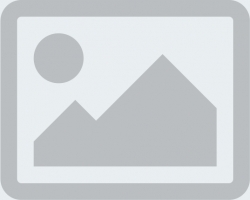'You writers are out of touch with reality.' said the taxi driver. Maybe to some extent he was right. But the truth is that reality has been stolen from us...The machines stole it. Everyday a new machine turns up to take away yet another slice of reality. And every day another machine appears that has no connection with reality whatsoever." (Introduction to "Dreamland")
 Copyright 2011 Christopher Lund
Copyright 2011 Christopher Lund
Andri Snaer Magnason is a writer and environmental activist. He has been called the "Al Gore of Iceland" and "Iceland's Michael Moore." He doesn't like either. Mother Teresa or Mahatma Gandhi would be preferable, he jokes. The thirty-eight year old doesn't like labels. He is someone who avoids catchphrases, who wants to look
below the surface, who notices early on when something is going wrong and takes action. His book "
Dreamland" (published 2008 in English) was a 600-page protest against the construction of the
Karahnjukar Dam in the eastern part of the island.
Glacial rivers and waterfalls were dried up for the giant dam; a large part of the highlands was flooded, and more than 57 sq m of pristine nature and the globally unique breeding grounds of the pink-footed goose were destroyed forever. And all in the name of a single company: Alcoa, the
Aluminum Company of America, which wanted to build a production site there and needed as much energy as a city with a million inhabitants. The energy hungry aluminium industry had discovered Iceland as an Eldorado of cheap, renewable energy and was welcomed with open arms. "For a politician it is very tempting to sign this kind of deal. In the beginning it means that a huge amount of infrastructure has to be created. After that the number of jobs are reduced from 5,000 to maybe 400 people who are actually working for the company. That's where
the catch-22 begins that makes this kind of deal necessary again and again. The politicians took one of the most beautiful areas of Iceland and offered it to companies reputed to be among the most unscrupulous firms in the world. It is as if paradise attempted to fuse with hell," says Andri Snaer Magnason.
Two additional aluminium plants were planned, one in the north, one in the south of the island. This means that in statistically speaking each of the some 300,000 Icelanders would have carried 20,000 euro worth of debt from the construction of the Karahnjukar Dam, which now feeds into one of the largest hydroelectric power plants in Europe. When he wrote the book Magnason still was hopeful that he would be able to stop the project. Today he is fighting to
keep it from happening again. He gives lectures, and in 2009 he reworked the story of "Dreamland" into a documentary film.

With over 20,00 copies sold, the book was a bestseller in Iceland. "I used to want to blow something up. Today I take
pills against this feeling," says the author, just as a tourist boat with the name "Cheer" steams by our cafe in Berlin. This medicine the author mentions is actually writing, even though he comes from a family of doctors and nurses. "Dreamland" is a mixture of parable, polemic and protest full of intelligent analyses, humour, economic insights, philosophy, stories and history, which sometimes goes as far back as ancient Egypt.
"My theory is that you can't
just build one pyramid. The engineers, suppliers and wage slaves want to keep going, even if the strong will of the pharaoh is against it. The people will overpower him."
Andri Snaer Magnason was the "
party pooper", as he says. The spoilsport. But how could you give up so much nature for aluminium that is made into a disposable drinking can in the US? "What kind of reality is this when you base your livelihood and your economy on someone's urgent need to drink cola out of a can that gets thrown away but that destroys nature?" asks the author.
His book is subtitled "Self-Help for a Frightened Nation". The Icelanders are a people which still struggles with an
inferiority complex after having been farmers and fishers under Danish rule for so long. A nation for whom "heavy industry" became a metaphor for all things good and wealthy and whose language increasingly consisted of phrases that no one really understood anymore.
"In Iceland the politicians promised to deliver 30 terrawatt hours of energy in an environmentally sustainable manner. So everyone immediately thinks, oh, that is scientific, rational and probably true. In doing so, they wanted to sell all the rivers of Iceland to these heavy industry companies and make us totally dependent on them. But this was presented as green energy, as a smart decision in favour of economic growth. For politicians 'growth' means
brownie points. Five percent growth, five brownie points. With smileys on top. Shows their doing a good job. Our politicians constantly received brownie points. From the OECD, all the international organizations, the rating companies."
That's how things went until the collapse of the banks and the near bankruptcy of the state in 2008. Afterwards, the island all at once became more environmentally friendly.
People had to save. Rubbish levels dropped by half, traffic decreased some 20 percent. And for a time there was not enough money for new energy projects. The new government of Social Democrats and Left-Greens is more open to environmental issues.
But for Icelanders the transformation is happening too slowly. "There are still the same people in positions of power, who say, calm down, we'll change. But if you don't change the people, nothing changes." There is some progress, regions that are now under environmental protection. But the
energy machine is very hungry and very powerful. For this reason the message of the book so much of which can be applied to other countries is: "There is no hope." Andri Snaer laughs as he says, "We were a small, beautiful country, but we ruined it."
"In February I was in China, and the first thing I saw on the street was the evil omen of Iceland: a black Range Rover. It's like a black cat. It means that your future is bleak. Then I saw those endless blocks of apartment buildings, just like the ones built in Iceland as investments, but just ten thousand times larger. It was as if I was standing right in the middle of the Icelandic real estate bubble, clapping my hands together and saying: 'There's no place like home.' I read that they have
60 million empty apartments. It's going to be a huge crash."
At the moment a new constitution is being reworked on the Internet according to an open source concept.
Art students are thinking up new ideas for agriculture with the farmers on their farms; intelligent minds like
Noam Chomsky are coming to Iceland with their ideas. In Iceland the environmental movement has always been in the hands of the
musicians, the creative industry, the small high tech companies, says Andri Snaer. And things are changing, there is a mental shift away from heavy industry to creative approaches that in the past were met with resistance.
"In heavy industry you can calculate nicely, promising jobs and money. In other sectors it doesn't work like that. I can't say that more tourists will come, that the computer industry will develop in certain way or that my book will be a best seller. You can't promise anything. In the face of this uncertainty there was this great plan, which was a reality when everything else seemed to be castles in the air. But living in this supposedly
unstable, creative society means security. Because you are more vulnerable when you get stuck in a giant inflexible monoculture with big firms. The fall is so much harder when they go somewhere else."
A father of four, Andri Snaer Magnason, lives, shows us what it means to live in a
creative society. His children's book "
The Story of the Blue Planet" has been translated into over 20 languages. He sold his book of poetry through "Bonus" the Icelandic version of Aldi with a cover design compatible with discount supermarket aesthetics.
The author, who was awarded the prestigious
Kairos Prize of the Alfred Toepfer Foundation last year, is now already working on his next book, a fairytale about the era and the necessity of hard times. And he has just interviewed Dalai Lama for a new film about the melting of the glaciers. This is a time when
people need books, says the author. They are a form of protest.
*
Andri Snaer Magnason. "Dreamland. A Self-Help Manual for a Frightened Nation" Citizen Press, 2009.
The article was originally published in the Tageszeitung on 4 October 2011.
Translation: ls Get the signandsight newsletter for regular updates on feature articles.
signandsight.com - let's talk european.![]() more
more Copyright 2011 Christopher Lund
Copyright 2011 Christopher Lund